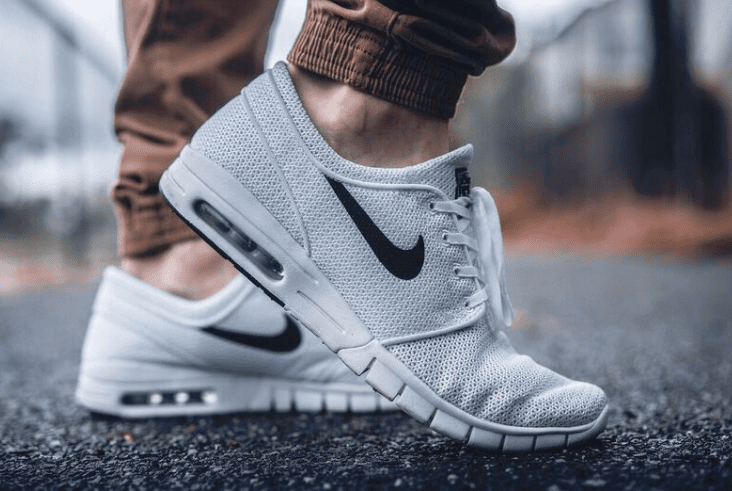Nike’s economic advocacy

author: janna wood | contributor

Pixabay
When threatened, our animal instinct is to remove the threat as quickly as possible (think fight, flight, and freeze)
Do you believe that controversial ideas ought to be stamped out to prevent them from catching on? Many of my fellow North Americans would dutifully reply, “Of course not!” That is, until the ideas in question compromise our comfort with the threat of real change – think Trump-ian policy – and we search for any means by which we can make the menace go away. This not only betrays a massively pessimistic lack of faith in humanity, but actually argues against our freedom to argue.
When threatened, our animal instinct is to remove the threat as quickly as possible (think fight, flight, and freeze). The problem is, these instincts are designed to protect from harm that is physical, not ideological. To resist the immediacy of instinct in favour of logic and long-term strategy is to choose civilization, peace, and free society over instability and oppression. Freedom of expression is not intended to protect popular speech (although it certainly does); this freedom is intended to protect exactly the type of speech that others – such as the status quo and the government – attempt to quash.
When others express themselves in ways that fill us with rage, disgust, and frustration, members of opposing groups often say “This isn’t the right time. This isn’t the right way. This isn’t the right venue for that kind of expression.” However, if we take a moment to examine our discomfort, we might ask ourselves: where is the right place? When will we accept this speech? If the answer is “nowhere, never,” we face a difficult choice – reconcile with our own frustration, or undermine our society’s fundamental rights?
When we seek to defeat bad ideas, we must engage with them in broad daylight. We need to prove why they are wrong. We have to audit our gut instincts with intellectual honesty, and entertain the possibility that our ideas are flawed. We have to speak in ways that may seem anti-social in the short term, because that which is pro-justice is inherently pro-social.
Still, unpopular expression is never free of penalties – for example, private employers do have the right to dictate the conduct of their employees.
The question is: is it right?
As a teacher, I’m bound under the Saskatchewan Teacher Federation (STF’s) code of ethics. This requires me to act “at all times in a way that maintains the honour and dignity” of not only myself, but of the teaching profession as a whole. At the same time, Saskatchewan teachers have a duty to “maintain awareness of the need for changes in the public education system and advocate appropriately for such changes.” I grapple with this language nearly every day – the intentional vagueness works, as intended, to scare teachers into extreme caution lest we be fined, suspended, or kicked out of the STF. I empathize with Colin Kaepernick and his protesting colleagues. As a role model, as a public figure, as an engaged citizen, does he not have a responsibility to use his platform to advocate for the oppressed? Although the NFL currently has the right to penalize players who resist their codes of conduct, should employers be able to punish employees for exercising their right to peacefully demonstrate dissatisfaction with government bodies? At work, are we employees first, and citizens second? At the same time, I’m troubled by the precedent that political demonstrations like Kaepernick’s might set. What if players decided to express dissatisfaction through the Nazi salute? The law is required to treat all manner of dissenting speech without discrimination, no matter how foul the cause. Is opening new avenues for the speech that we hate a risk we’re willing to take in the pursuit of social justice?
Even supporters of Colin Kaepernick’s kneeling protests are unsettled by Nike’s newest ad campaign. This controversy stems from one powerful truth: Colin Kaepernick is the face of a brand, not a movement.
At this moment in history, it seems impossible to have another ideological leader such as Martin Luther King Jr. Due in large part to globalization and the internet, progressive communities are moving past the idolization of individuals in favour of amalgamating powerful, effective ideas from a diverse host of influencers.
The people of modern socio-political movements are so much more than inspired bodies of followers; the accord, dissent, and lived experiences of individuals within such movements are being communicated more loudly than ever. How could one person hope to represent so many diverse voices?
Corporate attempts to cash in on an authentic social resistance trap consumers in a problematic limbo. Brands sell more when their name is fresh in consumer minds, and companies tend to succeed when they use capitalism’s inherent greed to uplift worthy causes. With the Kaepernick ad campaign, Nike has successfully accessed both the conscience and the subconscious of young North Americans. However, supporting Colin Kaepernick through buying Nike gear is not even remotely similar to supporting anti-oppressive movements such as Black Lives Matter.
This is where it gets ugly.
Presumably, many Nike employees are delighted to use the company’s platform to support topical anti-racist commentary. However, do we really believe that if the circumstances were flipped – if instead, racism was popular with the brand’s target demographic – that Nike would not be creating anti-Kaepernick ads to cash in on the trend? Personally, I have my doubts.
Still, Nike’s ad is an important cultural moment. They’ve brought NFL players’ controversial protests of police brutality, racial inequality, and employee censorship to the mainstream. Hopefully, this legitimizes the aims of player protests in the corporate realm. After all, if Nike is willing to bet their finances and their reputation on the success of this cause (did I mention that they’re the official uniform and apparel sponsors of the NFL?), the rest of the industry is bound to take note. Nike is throwing out some major BDE here, and their message to the NFL seems to be pretty clear: give it up, already.
My takeaway from this fascinating socio-political mess is this: if you wish to support Colin Kaepernick, support Black Lives Matter and similar movements. Donate to his charity, Know Your Rights. Buy ethical apparel from brands that pay their employees – largely people of colour – fair wages. If you wish to dissent, do it boldly, and leave it to the rest of us to argue about whether or not you’re right.









